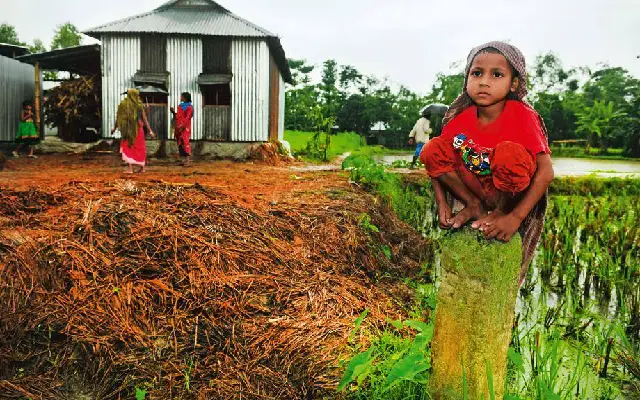Before the Citizenship (Amendment) Act (CAA) came into effect, there existed a group of individuals often referred to as the “nowhere people of Partition.” These individuals, who once lived in enclaves caught between the borders of India and Bangladesh, became celebrated new citizens of India following the historic land boundary agreement signed between Delhi and Dhaka in 2015.
Nine years later, despite their newfound citizenship status, many of these residents continue to face significant challenges. Living in cramped conditions with up to 25 people in two-bedroom apartments, they await the promised cash doles and struggle with property papers that have not been transferred to them. Additionally, job opportunities remain scarce, leading some to express a desire to return across the border.
As the Lok Sabha elections commence in Cooch Behar on April 19, the electoral rolls will include the 15,421 individuals who transitioned to Indian citizenship under the land boundary agreement. Despite their sizable presence, they find themselves on the margins of the election campaign, overshadowed by discussions surrounding the Citizenship (Amendment) Act.
The India-Bangladesh agreement resulted in the transfer of 111 ‘Indian’ enclaves to Bangladesh and 51 ‘Bangladeshi’ enclaves to India. While 921 individuals crossed over to India with much fanfare, approximately 14,500 residents of formerly Bangladeshi enclaves were identified as Indians.
Despite the change in citizenship status, the plight of these enclave residents remains dire. Many express dissatisfaction with their current living conditions, noting that their situation has not significantly improved since the agreement. However, residents of former Bangladeshi enclaves acknowledge some progress, such as the presence of roads, albeit acknowledging that their challenges persist.
The 921 individuals who lived in ‘Indian’ enclaves in Bangladesh and came to India in phases were initially kept in makeshift tin-roof camps on open grounds in Dinhata 1 Block of Cooch Behar district.
After five years of enduring summers and monsoons in these accommodations, in 2020, the state government relocated them into three apartment clusters with funds provided by the Centre. While one cluster is located in Dinhata Block, the other two are in Haldibari and Mekhliganj blocks of Jalpaiguri Lok Sabha seat, which also votes on April 19.
Kashem Ali, 65, has been sharing his two-room apartment in Dinhata with his family of 22 for three years. There are 58 families, like his, living in this cluster, all of whom came from Kurigram district in Bangladesh.
All of Kashem’s five sons are migrant laborers, earning daily wages in places like Delhi, Haryana, Gujarat, Bihar, and Uttar Pradesh.
Kashem expresses disappointment, stating that they were promised rehabilitation, land, employment, and Rs 5 lakh per family, but none of those promises were fulfilled. Despite receiving apartments, they still lack land for agriculture and proper job opportunities.
The Mamata Banerjee-led Trinamool Congress government provides 21 kg of rice and 14 kg of wheat per family per month under the rehabilitation scheme, but residents feel this is inadequate.
Many residents left behind land in Bangladesh and now struggle as daily wage earners in India. They feel let down by the unfulfilled promises of a better life in India and express a desire to return to Bangladesh.
However, returning is not without challenges. Despite being Indian citizens, many residents still lack proper documentation for the land they have been settled on for years. Efforts to resolve these issues are underway, but progress has been slow.
The residents feel neglected by politicians and political parties, with no one addressing their concerns or offering solutions. Despite their significant numbers, they remain on the sidelines of the election campaign, with little hope for change.
The uncertainty surrounding the Citizenship (Amendment) Act adds to their apprehensions about their future in India. Despite becoming Indian citizens in 2015, they fear how they will be treated under the Act, which promises expedited citizenship to religious minorities from neighboring countries.
In the absence of political solutions, some residents see the National Register of Citizens (NRC) as a potential solution, hoping it will facilitate their return to Bangladesh. However, their future remains uncertain as they navigate the complexities of citizenship and border disputes.
The story of enclave residents serves as a reminder of the enduring impact of historical legacies and geopolitical turmoil on the lives of ordinary individuals caught in the midst of border disputes and political promises.

















